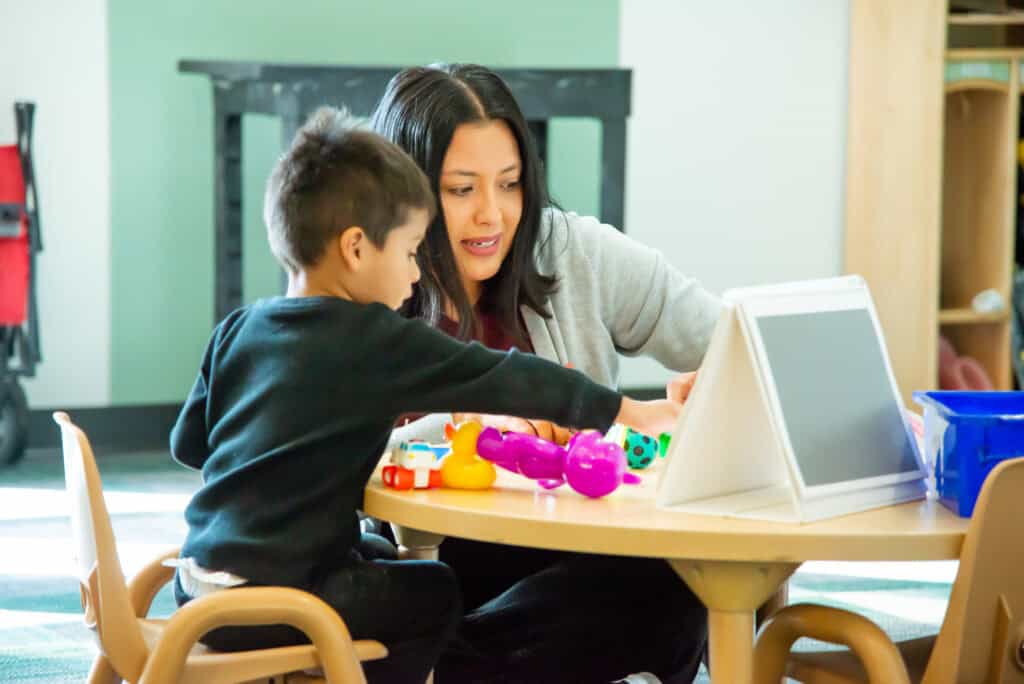Research Evidence from the Educare Learning Network
The Educare Network creates dynamic partnerships by bringing together diverse audiences who share the common goal of expanding access to quality early childhood education and reducing the socioeconomic opportunity gap. To achieve this aim, we launched a new content series to ensure the research and evaluation conducted within the Network are both widely accessible and actionable.
The Educare Insights series shares key Educare findings, lessons learned and recommendations for practice, policy and research through written briefs on critical topics in early childhood. Each brief includes a spotlight section, which amplifies the voices and stories of Network members and Educare schools.
Educare Insights Briefs
How dual language learning opportunities in the classroom affect children’s outcomes
Dual Language Learners (DLLs) are children under five years old who are learning a second language while continuing to develop their first or home language. DLLs are one of the fastest growing populations in the U.S., and make up a significant number of children enrolled in early care and education programs – including at Educare schools.
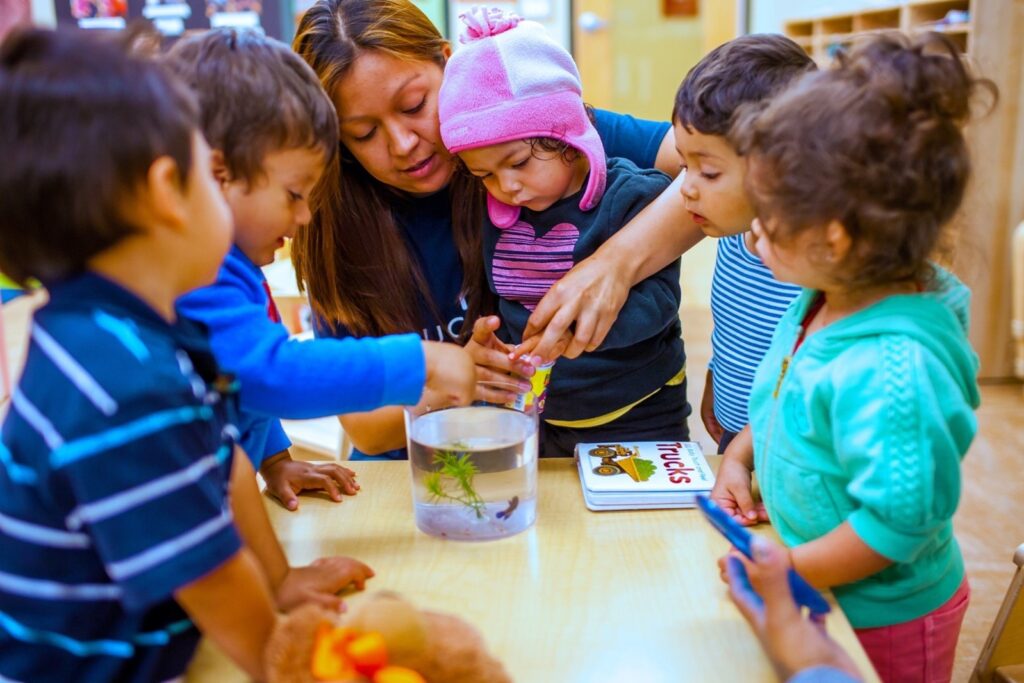
How timing & length of enrollment in early care and education settings impact children’s development
Timing and length of enrollment, also known as dosage, plays an important role in young children’s development – especially in early care and education settings. Research from Educare schools provides insight into policies and best practices that can help optimize children’s learning.
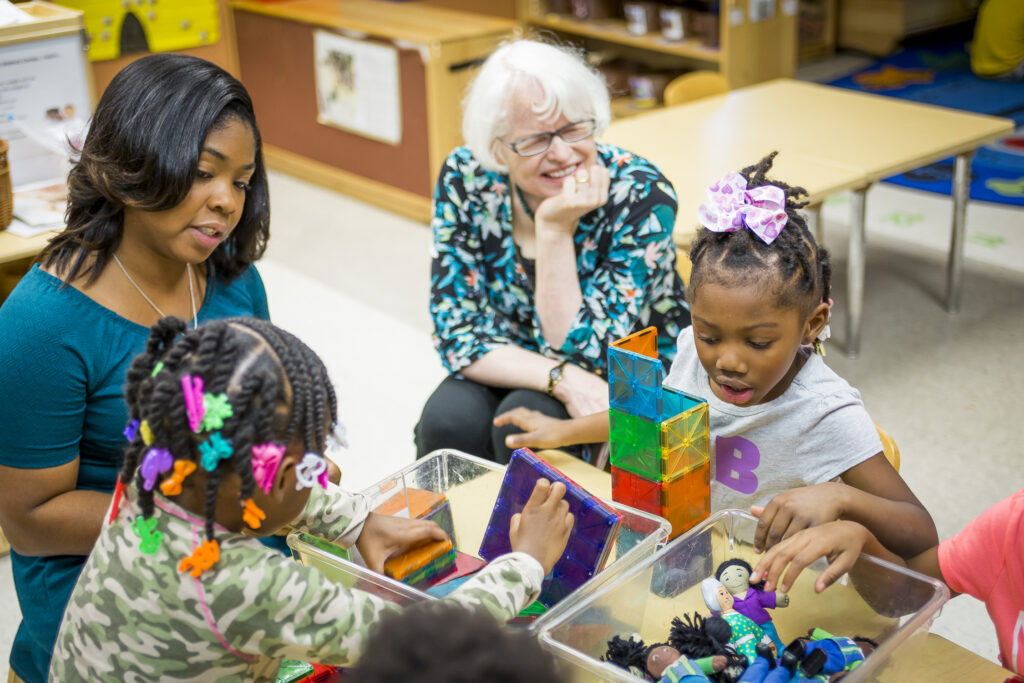
How focusing on program practice can help school leaders and staff develop, apply and strengthen family engagement practices
Across the Educare Network, schools are using a quality improvement effort called Targeted Supports to grow their family engagement practices. How? Through focused work, professional development and peer collaboration centered on creating and sustaining an empowering school culture that intentionally partners with families.
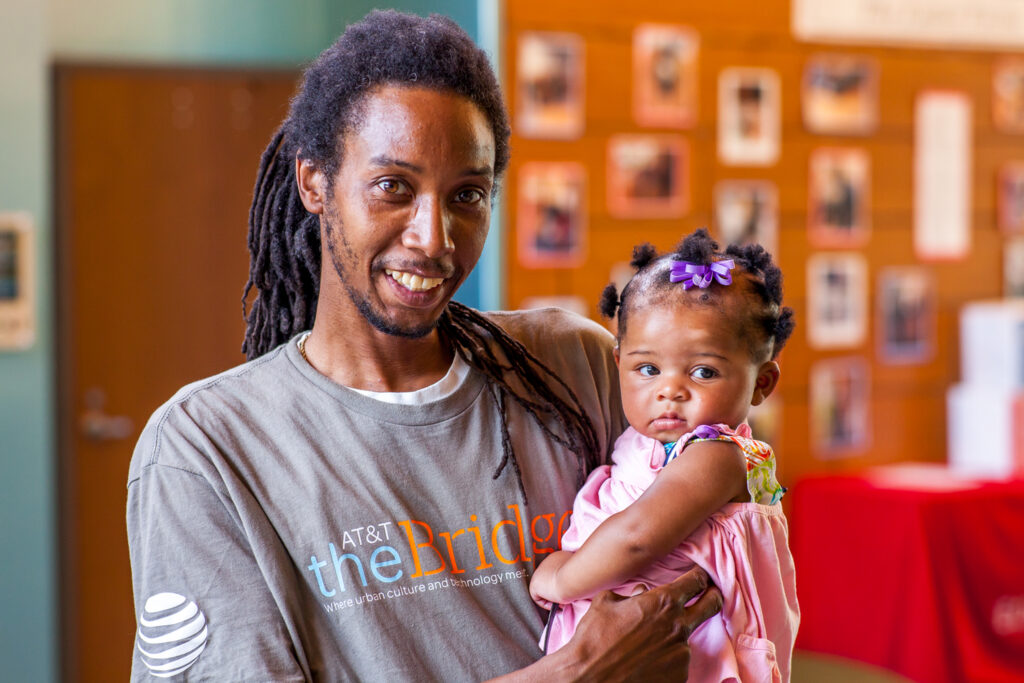
How relationships make a difference in children’s development
Self-regulation in early childhood is influenced by many factors, but especially by the development of key relationships – with parents and caregivers, teachers, and peers – both in the classroom and at home. This brief provides insight into future research, policies and best practices that can help strengthen these early relationships and optimize young children’s learning and development.
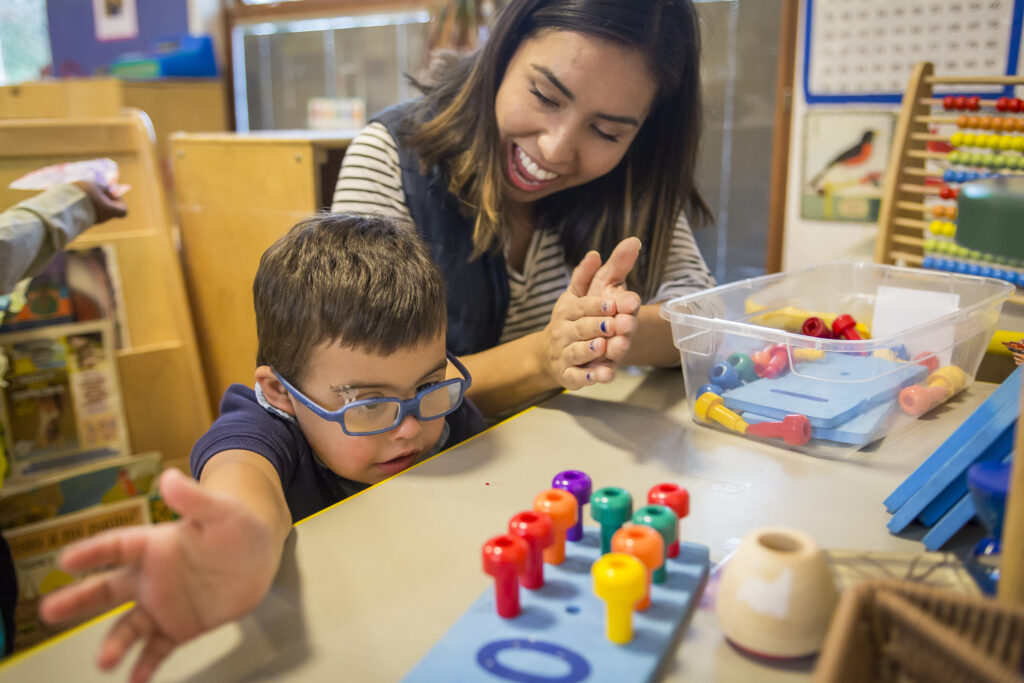
How additional efforts to intensify family engagement lead to changes in staff, program and family outcomes
As an accompaniment to an earlier Educare Insights brief on Targeted Supports, this brief focuses on findings from the next phase of evaluation, exploring additional changes resulting from improved family engagement efforts.

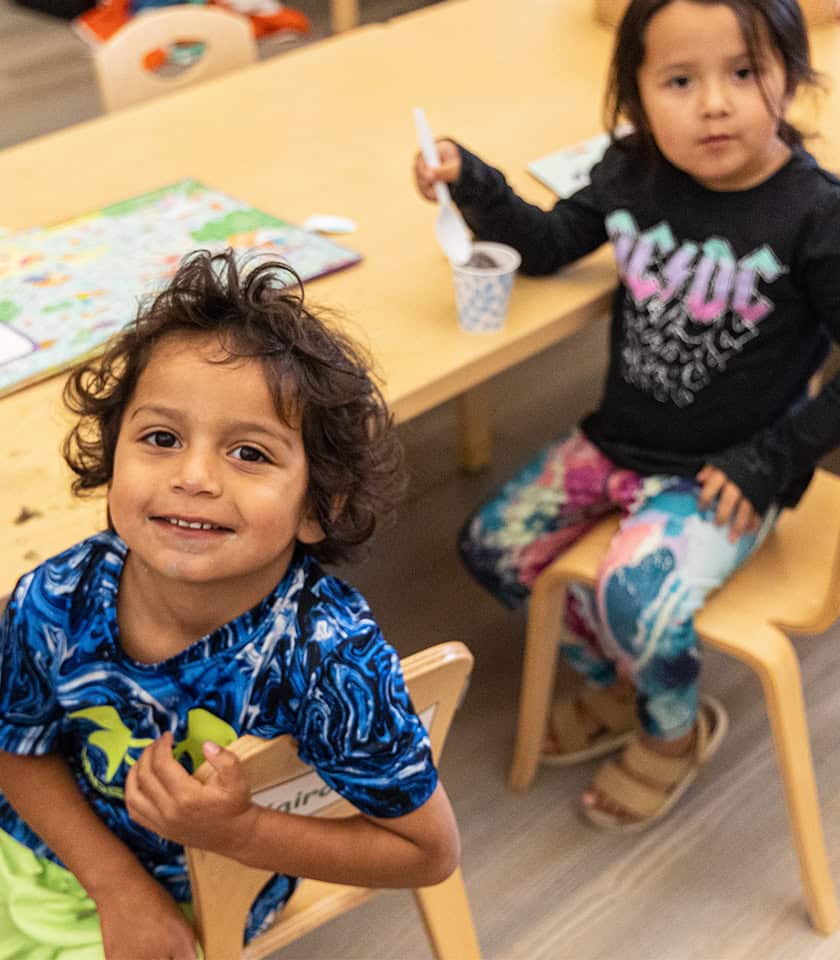
Data Bites
Educare Insights Data Bites are short reads aimed at building awareness, sparking dialogue and spurring further inquiry by situating research and voices from the Educare Network in the context of current challenges or opportunities within the early childhood field.
Data Bites invite problem solvers, innovators, practitioners, investors and anyone who loves early childhood to “bite” into questions and discussion about data on timely topics. It is our hope as a Network that Data Bites inspire more intentional use of data for program improvements, policy and systems change, and knowledge generation to ensure every family has access to quality early care and learning.
